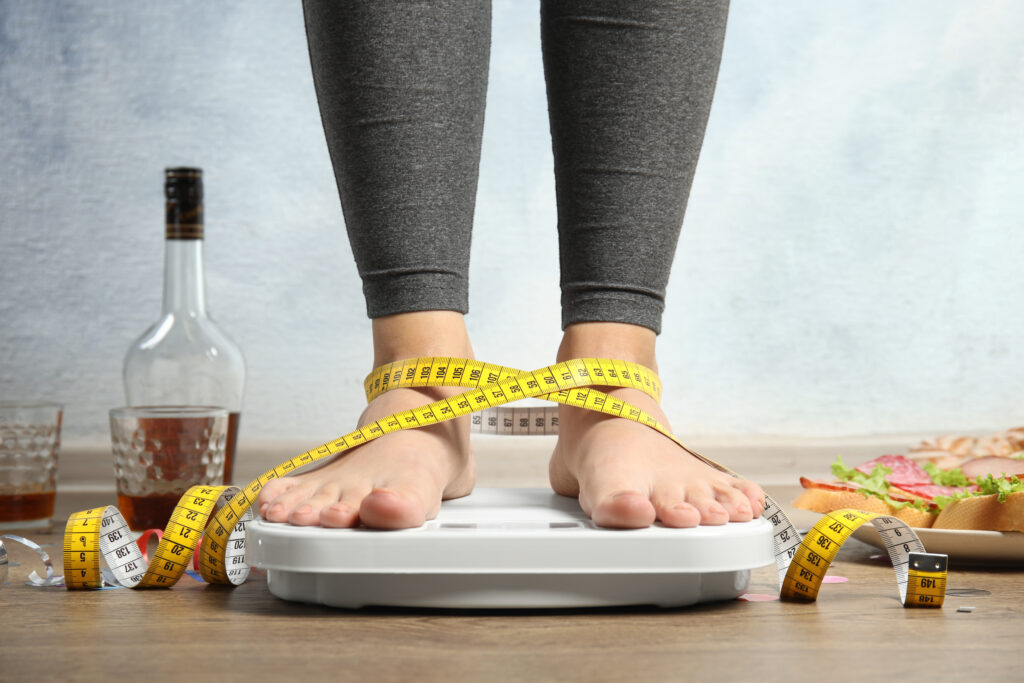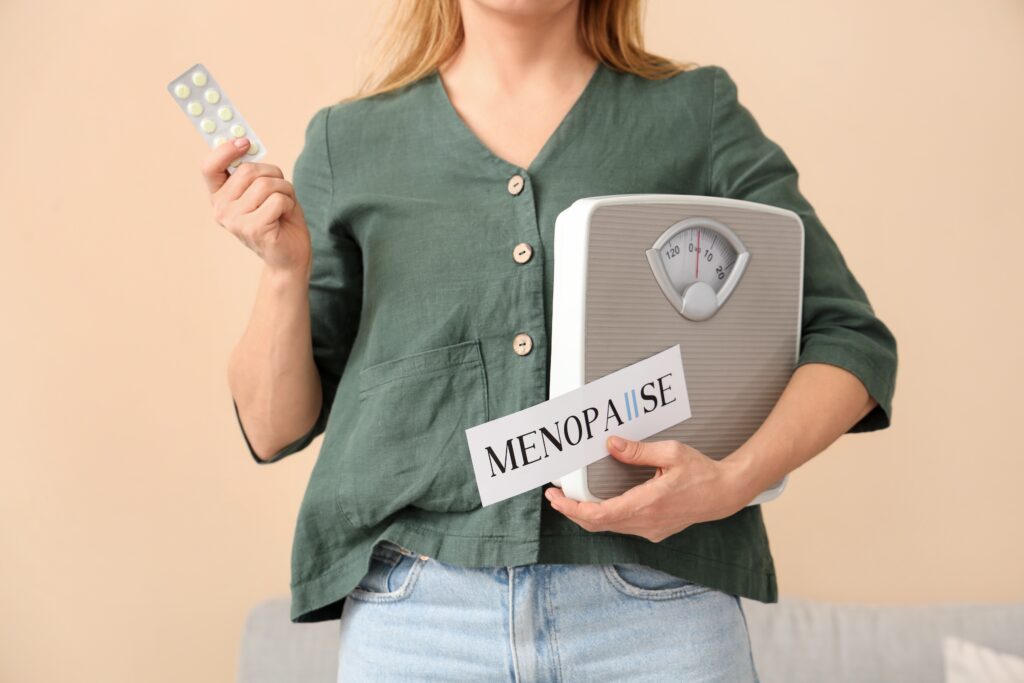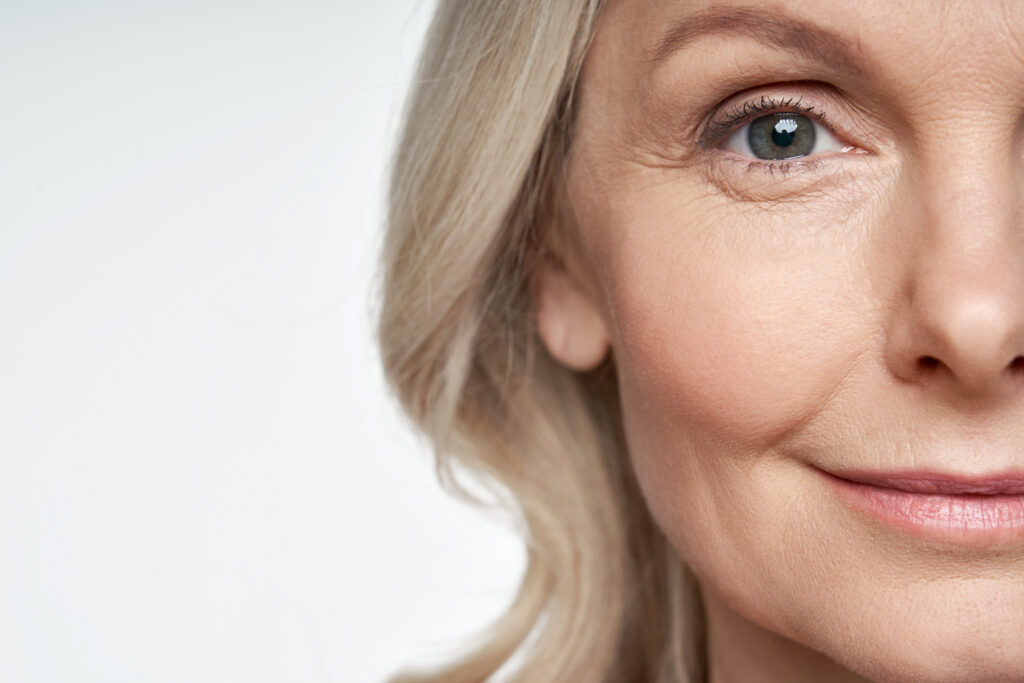How to Balance Hormones Naturally During Menopause

Let’s be honest, menopause can feel like a rollercoaster you didn’t sign up for. One day, you’re feeling like yourself, and the next, you’re battling hot flushes, mood swings, and wondering why your jeans suddenly feel tighter. The hormonal shifts during menopause aren’t just about reproductive changes; they impact your metabolism, energy, sleep, and even brain function.
Estrogen, progesterone, and testosterone levels fluctuate wildly during this transition, often leaving women feeling out of sync with their bodies. But here’s the good news – a natural approach that focuses on natural menopause remedies, including nutrition, movement, stress reduction, and targeted supplements for menopause, can help bring back balance. Research shows that lifestyle changes, particularly perimenopause hormone support like diet and strength training for menopause, can make a significant difference in managing menopause symptoms. Let’s dive into exactly how you can feel your best through this phase of life.

The role of lifestyle in hormone balance
We all know stress is unavoidable, but during menopause, chronic stress can wreak havoc on your hormones. Elevated cortisol levels interfere with estrogen and progesterone, making symptoms like weight gain, irritability, and night sweats even worse. Studies reveal that high cortisol levels during menopause contribute to insulin resistance, which can lead to stubborn weight gain .
How do we keep cortisol in check?
- Deep breathing exercises: Try the 4-7-8 method or a few minutes of meditation to activate your body’s relaxation response.
- Journaling or gratitude practices: Shifting focus away from stress can lower cortisol naturally.
- Laughter and connection: Studies show that spending time with friends and sharing a good laugh can reduce cortisol and boost feel-good hormones like oxytocin. So yes, that catch-up with your bestie is doctor-approved!
Quality sleep and hormone regulation
Ever feel like menopause is conspiring against your sleep? You’re not imagining it. Estrogen plays a role in regulating melatonin, so when levels dip, falling and staying asleep becomes a challenge. One study found that postmenopausal women with poor sleep had higher levels of inflammation and metabolic issues.
For better sleep:
- Create a wind-down routine: Take magnesium before bed, ditch screens an hour before sleep, and try relaxation teas like chamomile.
- Keep your room cool and dark: This helps combat night sweats and restless sleep.
- Stick to a schedule: Going to bed and waking up at the same time each day helps regulate your body’s internal clock.
Exercise: strength training and low-impact movement
If you’re only focusing on cardio, it’s time to rethink your approach. Strength training for menopause is one of the most powerful ways to balance hormones naturally during menopause. Research shows that resistance training boosts testosterone, preserves muscle, and supports metabolism, all essential for navigating menopause smoothly.

Best exercises for natural menopause remedies:
- Strength training (2-3 times per week): Focus on squats, deadlifts, and push-ups to build muscle and improve insulin sensitivity.
- Walking: A fantastic low-impact option to reduce stress and improve heart health.
- Pilates and yoga: Helps regulate cortisol, enhance flexibility, and build core strength.
- HIIT (in moderation): Short bursts of high-intensity exercise boost growth hormone, which supports metabolism and fat loss.
Nutrition for hormonal balance
What’s on your plate can either help balance your hormones or throw them into further chaos. The right foods fuel your body, support hormone production, and keep energy levels steady.

- Protein: Keeps you full, maintains muscle mass, and helps stabilise blood sugar. Aim for 20-30g per meal from sources like eggs, tofu, fish, and legumes.
- Phytoestrogens: Natural plant compounds found in flaxseeds, soy, and legumes that mimic estrogen and help reduce hot flushes.
- Healthy fats: Avocados, nuts, seeds, and olive oil support brain function and hormone synthesis.
- Fibre-rich foods: Whole grains, vegetables, and legumes aid in estrogen metabolism and gut health.
What to avoid
Some foods can worsen hormonal imbalances, making symptoms more intense.
- Refined sugar and processed carbs: Spikes in blood sugar can contribute to insulin resistance and energy crashes.
- Excess alcohol: Disrupts estrogen metabolism, can exacerbate hot flushes, and make sleep disturbances worse.
- Ultra-processed foods: Increase inflammation, leading to joint pain and fatigue.
The role of blood sugar balance
When blood sugar levels fluctuate, estrogen and progesterone get thrown off balance. One study found that stabilising blood sugar helps regulate menopause symptoms and prevent energy dips.
Tips to manage menopause symptoms naturally
- Prioritise protein, healthy fats, and fibre in every meal to slow glucose absorption.
- Avoid skipping meals to prevent energy crashes and cravings.
- Limit caffeine if experiencing heightened anxiety or sleep issues.
The best supplements for menopause hormone support
While a well-balanced diet should be the foundation, these supplements for menopause can help bridge any nutritional gaps and provide additional support for hormone regulation.
- Magnesium & taurine: Improve sleep, stress regulation, and mood stability.
- Omega-3s: Reduce inflammation and support brain and heart health.
- Vitamin D & K2: Essential for bone density and immune function.
- Adaptogens (Ashwagandha, Maca, Rhodiola): Help regulate cortisol and improve energy.
- DIM (Diindolylmethane): Supports estrogen metabolism and hormonal balance.
Should you consider HRT?
For some women, hormone replacement therapy (HRT) is a game-changer. Research suggests that bio-identical hormones (estradiol and micronised progesterone) may be safer and more effective for symptom relief than synthetic versions.
However, HRT isn’t for everyone. It’s a highly personal decision that should be made based on symptoms, medical history, and personal preference. If you’re considering HRT, working with a knowledgeable healthcare provider can help you weigh the pros and cons.
The bottom line
Menopause is a natural phase of life, but that doesn’t mean you have to suffer through it. Balancing hormones naturally through nutrition, movement, stress management, and targeted supplementation can have a transformative effect on how you feel each day.





